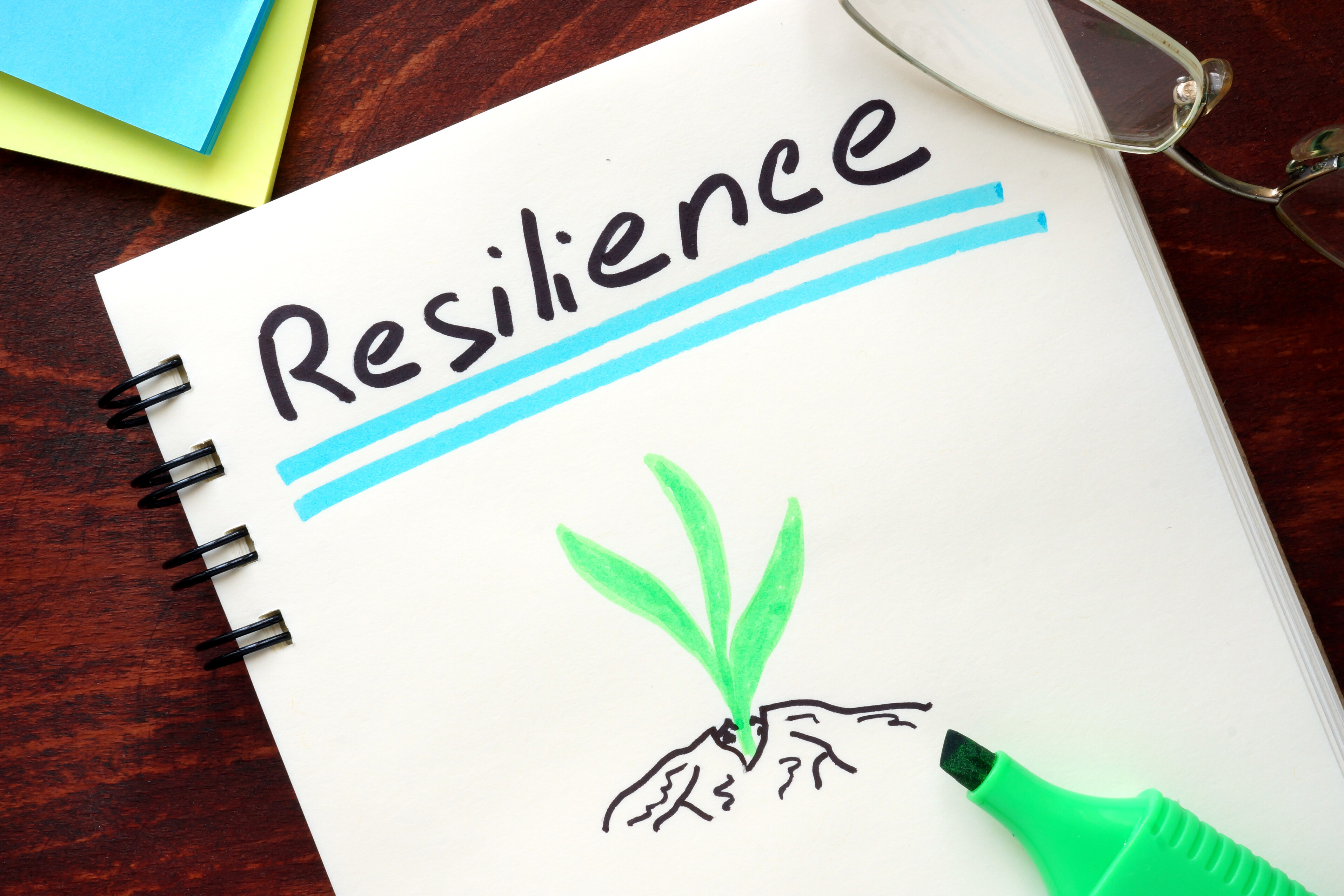Resilience & Mental Health: Building Strength, Not Bitterness

Table of Contents
Understanding Resilience and its Impact on Mental Wellbeing
Defining Resilience
Resilience is the ability to successfully adapt to life's stressors and bounce back from adversity. It's not about avoiding hardship, but about navigating challenges with grace and maintaining a positive outlook. Resilient individuals possess a unique set of characteristics that enable them to cope effectively.
- Problem-solving skills: They approach challenges methodically, breaking them down into manageable steps.
- Optimism: They maintain a positive outlook, even in difficult situations, believing in their ability to overcome obstacles.
- Self-efficacy: They believe in their own capabilities and competence.
- Strong social support: They have a network of supportive friends, family, and community members.
Resilience acts as a protective buffer against various mental health issues. Studies show strong links between high resilience and:
- Reduced risk of depression: Resilient individuals are better equipped to manage negative emotions and prevent them from spiraling into depression.
- Lower rates of anxiety: Their ability to cope with stress minimizes the likelihood of developing anxiety disorders.
- Improved recovery from PTSD: Resilience helps individuals process traumatic experiences more effectively, reducing the long-term impact of PTSD.
The Link Between Resilience and Bitterness
Without resilience, facing hardship can lead to bitterness – a feeling of resentment, anger, and cynicism towards oneself or others. This bitterness can become a significant obstacle to mental wellbeing.
- Increased stress: Bitterness fuels a constant cycle of negative emotions, leading to chronic stress.
- Strained relationships: Resentment and cynicism damage personal connections, leading to isolation and loneliness.
- Physical health problems: Chronic stress associated with bitterness can manifest in physical symptoms like headaches, digestive issues, and weakened immunity.
Resilience, conversely, helps individuals process negative emotions healthily. It allows for acceptance of difficult experiences without letting them define their future, preventing the festering resentment that fuels bitterness. By actively developing coping mechanisms, resilient individuals transform hardship into opportunities for growth and learning.
Practical Strategies for Building Resilience
Cultivating a Positive Mindset
A positive mindset is a cornerstone of resilience. This doesn't mean ignoring negative emotions; it means reframing negative thoughts and practicing self-compassion.
- Positive self-talk: Replace negative self-criticism with encouraging and supportive statements. Challenge negative thoughts and replace them with more realistic and positive alternatives.
- Cognitive reframing: View challenges as opportunities for growth and learning rather than insurmountable obstacles. Focus on what you can control rather than what you can't.
- Mindfulness practices: Mindfulness meditation helps you to become more aware of your thoughts and feelings without judgment, allowing you to manage negative emotions more effectively. Techniques like deep breathing and body scans can be incredibly helpful.
Building Strong Social Connections
Strong social support is a powerful buffer against adversity. Having a network of supportive individuals to lean on during difficult times is crucial for building resilience.
- Benefits of strong relationships: Social support provides emotional comfort, practical assistance, and a sense of belonging. Knowing you are not alone can significantly impact your ability to cope with challenges.
- Strategies for building and maintaining healthy relationships: Nurture existing relationships, actively seek out new connections, and participate in activities that foster community.
Developing Effective Coping Mechanisms
Developing healthy coping mechanisms is crucial for navigating stress and difficult emotions. This involves finding strategies that work best for you.
- Stress management techniques: Regular exercise, meditation, yoga, and deep breathing exercises can help to regulate the body's stress response.
- Seeking professional help: Therapy and counseling can provide valuable support and guidance in developing effective coping strategies and processing difficult emotions. Don't hesitate to seek professional help if you're struggling.
Embracing Self-Care
Prioritizing self-care is not selfish; it's essential for maintaining both physical and mental wellbeing and building resilience.
- Examples of self-care activities: Ensure you're getting enough sleep, eating a healthy diet, engaging in enjoyable hobbies, and spending time in nature.
- Connection between self-care and improved resilience: Self-care replenishes your energy and resources, allowing you to face challenges with greater strength and adaptability.
Conclusion
Resilience is not an innate trait; it's a skill that can be learned and strengthened over time. Understanding its importance for mental health, recognizing the link between resilience and bitterness, and actively implementing practical strategies to build resilience are crucial steps towards thriving in the face of adversity. By cultivating a positive mindset, building strong social connections, developing effective coping mechanisms, and prioritizing self-care, you can significantly enhance your ability to navigate life's challenges and build strength instead of bitterness. Start building your resilience today. Practice mindfulness, nurture your relationships, and don't hesitate to seek professional support if needed. You have the power to overcome adversity and build a life filled with strength and wellbeing. Improve your mental health by actively working to build resilience and overcome adversity. Remember, building resilience is a journey, not a destination.

Featured Posts
-
 Understanding D Wave Quantum Inc S Qbts Recent Stock Market Performance
May 20, 2025
Understanding D Wave Quantum Inc S Qbts Recent Stock Market Performance
May 20, 2025 -
 Ai Coding Agent Integrated Into Chat Gpt Improved Efficiency And Productivity For Developers
May 20, 2025
Ai Coding Agent Integrated Into Chat Gpt Improved Efficiency And Productivity For Developers
May 20, 2025 -
 The Trump Factor Increased Us Applications For European Citizenship
May 20, 2025
The Trump Factor Increased Us Applications For European Citizenship
May 20, 2025 -
 Eurovision 2025 Finalists A Ranking From Hypnotic To Atrocious
May 20, 2025
Eurovision 2025 Finalists A Ranking From Hypnotic To Atrocious
May 20, 2025 -
 Experience Culinaire Restaurant Rooftop Galeries Lafayette Biarritz Avant Pau
May 20, 2025
Experience Culinaire Restaurant Rooftop Galeries Lafayette Biarritz Avant Pau
May 20, 2025
